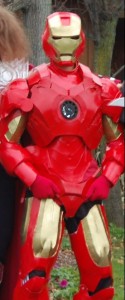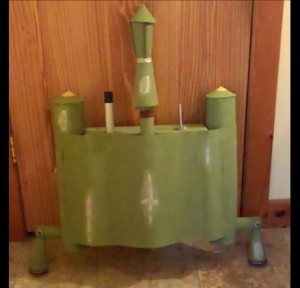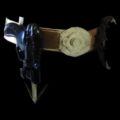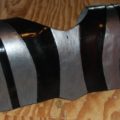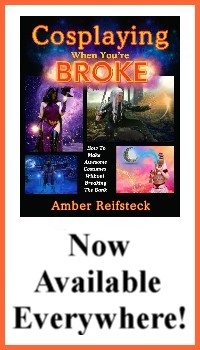Cosplay Materials
Thermoplastics such as Wonderflex and Worbla have taken the cosplay world by storm since they were first realized as ideal armor making cosplay materials. Generally theroplastics are made from some type of wood or paper dust and mixed with plastic to combine them into a sheet of material that is hard when cool, but when heated becomes pliable enough to be bent into any shape.
Wonderflex and Worbla
Wonderflex is the stronger of the two materials, but does have some limitations to its flexibility. It cannot be used to make full curves. (However, the company recently introduced Wonderflex Pro. Wonderflx pro is able to bed in any direction, so it can make complex curves easily).
Worbla is completely flexible when heated and can be formed into any shape. However, it also lacks some of the strength that Wonderflex has. Many cosplayers make up for it by using foam behind the worbla to give it added strength.
One of the pluses of thermoplastics is that they are somewhat eco-friendly in that there is no waste produced by them. No matter how tiny the scraps you have left are, they can always be heated up and seamlessly meshed into a larger piece like clay. The con of these materials, however, is the price. A 14×19 inch sheet of Worbla can cost around $30, rather pricey if your costume is armor-heavy.
Cardboard
There are less expensive alternatives, however. Don’t overlook the efficiency of good old-fashioned cardboard. It’s often a free material as it’s usually something we have in excess, whether it’s shoe boxes or cereal boxes. It can often be made to look like armor or other cosplay pieces with a little creative painting.
Foam
Foam is also a cheap alternative to thermoplastic. While it doesn’t have the hard texture or flexibility of thermoplastic, foam is far more affordable. It can be used to make a variety of shapes using some clever cutting and gluing. Craft stores readily carry foam sheets. Hardware stores such as Lowes and the Home Depot carry thicker EVA floor mats that can be used for armor construction as well. The Iron Man suit pictured at the beginning of this post was a costume my brother made out of EVA foam mats with no thermoplastic at all.
Fabric Cosplay Materials
Perhaps most notable in cosplay materials is that the selection of fabrics has improved drastically. In the old days, a cosplayer’s options for cosplay fabrics didn’t extend much beyond satin. Now fabric stores carry a wide selection of performance fabrics, pleather, alova, distressed, and foil fabrics. All of these work wonderfully as substitutes for armor and leather costume pieces.
Pellon
Pellon is also indispensable as a cosplay material because when covered with fabric, it holds the material rigid, while still keeping the fabric’s texture. I often use Pellon covered with gold or silver foil fabric to create armor pieces. It’s flexible enough to shape any way I want it (though it has to be stitched or wired in place to hold shapes), but strong enough to stand stiff. Such foil fabrics are also shinier than most paints, so they tend to look more like real metal at first glance.
Covering Pellon with distressed fabric is a great way to make fake leather for breastplates or bracers as well. Unlike real leather, you don’t need any fancy tools to work with it. You can just use your usual scissors and sewing machine. Another advantage is that while hot glue doesn’t generally stick that well to real leather, it sticks to distressed fabrics just fine.
By Amber Reifsteck, The Woodland Elf
The information provided on this website is for general information purposes only. If you choose to rely on the information on this website, you do so at your own risk and you assume responsibility for the results. (Full disclaimer here)
Enjoy this post? Click here to subscribe by email and get new posts delivered to your inbox.Ads by Google

